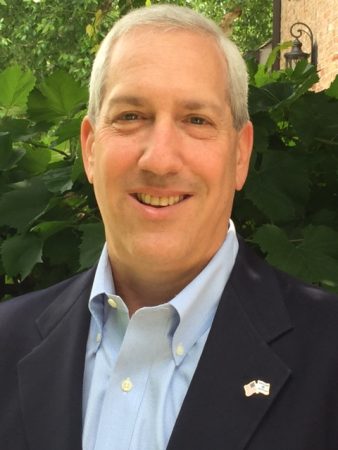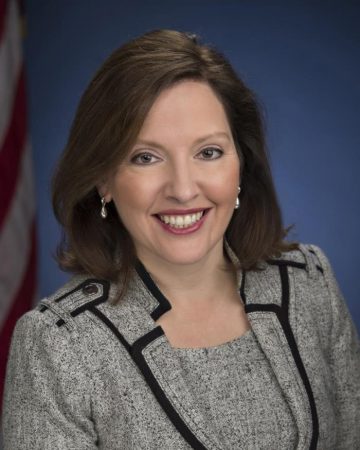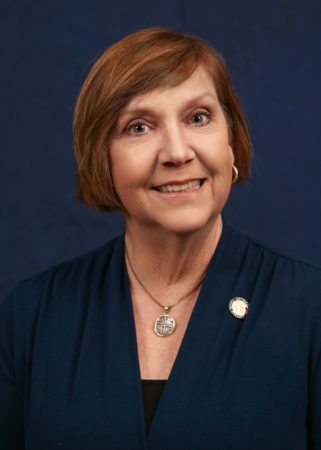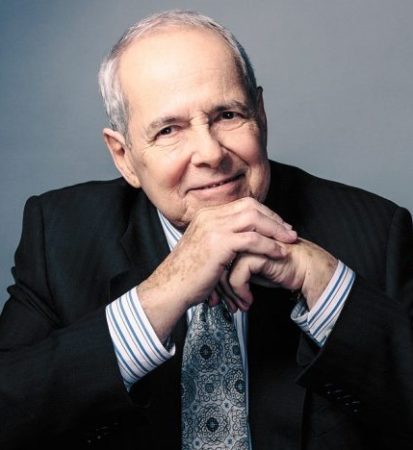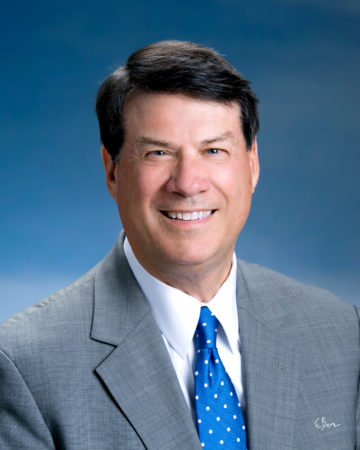What does the new year – and new decade – have in store for local communities? We asked local leaders to dust off the crystal ball and predict the biggest local issues in 2020 and how they might play out. Here’s what they had to say.
Andy Bauman
Sandy Springs City Council
We will continue to face many consequential local and regional issues in 2020, including the impact of countless infrastructure projects, managing growth, and, for many, rising cost of living (particularly housing and healthcare). In my view, however, the biggest challenge will be the political polarization, tribalism and incivility that permeates into our daily lives. The 2020 national and statewide elections, I fear, will only exacerbate the divisions within our society.
It’s not just “talking heads” and so-called pundits on national cable shows that spew the vitriol. It’s out there in social media, in our daily interactions, and, sadly, sometimes within our own families (especially during holiday gatherings). Unfortunately, the sharp divisions are fueled by many who hold elective office, not just in Washington, but at all levels. Distrust and hostility towards “the other side” significantly contributes to an erosion of public confidence in our most foundational institutions and complicates and delays much-needed and sometimes even otherwise non-controversial policy making.
Ironically, concern over the lack of civility is one of the few bipartisan issues out there. Regardless of our “side,” we all experience it, we may even contribute to it, and it’s exhausting. For many people, it’s a turnoff from civic engagement at a time when we need it most. Even (and especially) locally.
In our own lives, whether as family members, friends, neighbors, co-workers, or serving in leadership roles within our community, we can practice and model civil discourse, and we can listen to opposing views with respect, courtesy and empathy. This should not be construed as a call for complacency in the face of injustice, or an abandonment of principles or vigorous political debate and advocacy. But we have a lot of issues to work on, and we will all be better off when we can work on them together.
Mayor Lynn Deutsch
Dunwoody
The second decade of Dunwoody cityhood affords us the opportunity to move beyond parks, police, paving and planning. Those will remain important, but it is clear that our city needs to chart a path that addresses more of our citizens’ needs. As a council person and a candidate, I heard repeatedly that our priorities should expand to include connectivity, community building, a revitalized Dunwoody Village and more.
The update of the Dunwoody Village Master Plan will be completed shortly. The city has had record-breaking participation in our public input process. Our community is ready for changes to the area. I am hopeful that citizens will have confidence that the city is moving in the right direction with the Village and other commercial areas by the end of 2020.
Dunwoody will take over the old Austin school property in early 2020. The old Austin site will become a park shaped by an extensive public input process. We are working with neighboring cities to connect our various trail systems to enable residents the ability to walk or bike between our communities. Council must prioritize the development of a plan to maintain our growing park resources.
The biggest challenges facing our community are related to the DeKalb County School District and the I-285 managed lanes project. I have begun conversations with leaders across DeKalb about the need to work together to make improving the school system a priority.
The announcement of changes to the I-285 managed lanes has made impacts, timing and design unclear. I will continue to advocate for Dunwoody with the Georgia DOT to mitigate the impacts of this massive project.
Dunwoody’s opportunities abound and 2020 promises to be an exciting year. I am excited to work with our residents, council and staff to move Dunwoody forward.
Bob Ellis
Fulton County Commission
Property taxes have long been a significant concern of Fulton County residents, and we have made great strides in reducing the tax burden on our citizens. I was very pleased that the Board of Commissioners voted to reduce the millage for the fourth year in a row, and I look forward to realizing further reductions in coming years. Residents also saw significant tax relief through a cap on property tax increases implemented in 2019, while our senior citizens realized additional tax reductions with the expansion of their homestead exemptions. Lastly, we were successful in resolving Fulton County’s property tax litigation with the state Department of Revenue in the favor of Fulton taxpayers.
Our efforts will not stop there, as we are looking to identify additional opportunities for property tax relief in 2020. Among other things, the county will work with the Georgia Legislature to simplify and improve the homestead exemption and appeals process. Plans are also in place to expand educational programs to help property owners better understand the process and protect their homeowner rights. My goal always has been – and will continue to be — to keep more money in the pockets of Fulton County taxpayers.
I will remain focused on all levels of health services as a top priority. To consolidate and improve accessibility and quality of services in North Fulton, the county recently purchased a spacious facility on North Point Parkway in Alpharetta. When opened in late 2020, the new center will offer convenient, one-stop shopping for those seeking access to health, behavioral health, developmental disabilities, primary care, and social services.
Mayor John Ernst
Brookhaven
In 2020, I’m looking forward to conversations on how to accomplish the recently adopted ATL’s Regional Transit Plan so we can move forward on increasing transit options and reduce traffic in our region. Also, as a parent of two public school students, the DeKalb County Schools redistricting will be a topic of conversation in 2020.
As for local Brookhaven issues, 2020 will bring many traffic intersection improvements and park construction projects. New traffic improvement projects to help the flow of traffic will be completed at three high traffic intersections: Windsor Parkway and Osborne Road, Ashford-Dunwoody Road and Peachtree Road, and Ashford-Dunwoody Road and Johnson Ferry Road. Motorists who may be inconvenienced during construction periods will be rewarded with better commute times afterwards. Sidewalks and paths are also included in these projects so we will have more walk-bike options to get around. Keep informed of construction projects by signing up for city news at brookhavenga.gov.
Park improvement projects will occur throughout Brookhaven’s park system in 2020 as we work to complete our Park Bond projects at a rapid pace. Highlights include the new pool facilities at Briarwood Park that will be completed by summer 2020 and Lynwood Park master plans will be finalized with community input.
I hope everyone puts visiting our new Peachtree Creek Greenway on their must-do list for 2020. It’s a great trail for biking, running or walking with family and pets.
State Rep. Betsy Holland (D-Atlanta)
The most pressing issue facing the state Legislature is the state budget. Our only constitutional requirement as legislators is to pass a balanced budget each year. We have to find a way to responsibly fund critical programs throughout the state, even in the face of the governor calling for deep cuts in spending. School safety counselors, foster care, correctional facilities, public health agencies and domestic violence centers are just a few of the places where these cuts could have devastating impacts.
My personal priority will be talking about affordable housing – how can we reduce the burden of property taxes, manage development responsibly and help seniors stay in their homes? It’s bound to be a long, complicated path, but I’m convinced the state, county, city and school system can work together to find solutions. By forging a path to more affordable housing in our community, we can reduce traffic congestion and strengthen our local businesses.
Linley Jones
Brookhaven City Council
As metro Atlanta continues to grow, I expect our biggest issue in Brookhaven will be traffic volume and congestion. Our mayor and City Council will continue to proactively address these issues by implementing the traffic studies created by traffic consultants and city staff based on broad citizen input.
Much progress has already been made in improvements based on the Ashford-Dunwoody Corridor Study, such as intersection improvements like that at Nancy Creek Drive, and more improvements are on the way throughout the corridor. At present, construction is underway on improvement of the intersection of Ashford-Dunwoody and Johnson Ferry roads, and Ashford-Dunwoody’s intersections with Windsor Parkway and Peachtree Road are slated for exciting changes in the study as well.
The traffic challenges mount as we are surrounded by increasing density, but here in Brookhaven we are succeeding at smart growth and planning by following the feedback of the community as reflected in the character areas adopted last year. This ensures that any development is in keeping with the community’s interests to the greatest extent possible.
Meanwhile, although we continue to make progress, there is periodic worsening of congestion as improvements at I-285 and Ga. 400 cause backup in our community. These are temporary growing pains. When completed, all these state and local road improvements should have a significant positive impact and contribute to maintaining our quality of life.
State Sen. Jen Jordan (D-Atlanta)
Every Georgian should have access to a great public education, have a shot at a good job, and be able to see a doctor. But the state hasn’t pursued policies that can make that a reality for most Georgians.
For example, Georgia’s minimum wage is $5.15 and the federal minimum wage is $7.25. A Georgia resident needs to earn approximately $18 an hour to afford a modest two-bedroom apartment (on average statewide). At $7.25 an hour, a person would have to work almost 100 hours a week to afford such an apartment. This gap between wages and ability to find housing continues to grow.
Efforts to take millions from our public school systems persist, while our teachers remain underpaid and class sizes increase. And instead of providing healthcare to almost 500,000 of our uninsured residents, the state is pursuing a waiver so that it won’t have to comply with the protections of the Affordable Care Act, because of purely political campaign promises. Apart from costing more to cover fewer people, this approach will result in Georgia losing an estimated $2 billion in additional healthcare spending annually that could help save rural hospitals, improve our staggering maternal mortality rate, and ultimately lower premiums for everyone.
These are real problems that affect so many in our community, but there are ways to battle them. Raising the minimum wage to $10.10 an hour (and allowing local governments to do more if voters want them, too), fully funding public education, and expanding Medicaid are all a start.
State Sen. Kay Kirkpatrick (R-Marietta)
I think we are going to be spending a lot of time on the budget this year. Based on disappointing tax revenue, the governor has asked agencies to cut 4% for this fiscal year and another 6% for next year. Since education and Medicaid are exempt, that leaves a significant challenge for the other programs. Since we have a balanced budget, there will be a lot of negotiation that will likely dominate the session.
There will also be a significant conversation about gambling in its various forms. This issue has not gotten much traction previously, but the budget issues have given this a better chance. I have significant concerns about the impact of destination resorts on local communities, especially arts and culture, in addition to the baggage that can come with these gambling destinations as we fight an epidemic of gangs, trafficking and addiction.
We made a lot of progress on healthcare and insurance last year and we will continue to work on improving healthcare delivery throughout the state and our general state of health in Georgia. We have seen some indications of more competition in the individual market that should drive down prices in combination with the waiver programs being submitted to the federal government. There has been a robust conversation about transparency in the past year and I expect to see further movement on better access for consumers on price information.
Sam Massell
President, Buckhead Coalition
It has been 50 years since I left office as mayor of Atlanta, yet I have to report that the main issues facing my community are pretty much the same as they were then — and they are nationwide in major urban cities. Thus, there will be no surprise to the reader when I list crime, taxes, and traffic.
This is not to say there is nothing being done to improve the conditions where we find fault, or how the eventual outcome will be. 1) People complain about crime when there are incidents in the neighborhood or where they know the parties involved — repeated incidents that can be avoided with new initiatives; 2) taxes when new assessments are delivered — offset where political boldness of kept promises is exercised, and 3) daily increased traffic — visibly improved by action taken on yesterday’s plans.
Local government has the power to make these improvements, so make demands of candidates in the next elections.
J.P. Matzigkeit
Atlanta City Council
Restoring trust in city government is the biggest issue facing Atlanta in 2020. Trust is the foundation upon which everything rests. Citizens deserve to know that their government is honest, open and worthy of their confidence.
We want to trust all public servants, but it’s essential we verify that. It’s why I’m focused on implementing an office of Inspector General for the city of Atlanta.
In 2019, Mayor Keisha Lance Bottoms and City Council put together a Task Force for Promotion of Public Trust made up of leading state and local jurists and chaired by retired Georgia Supreme Court Justice Leah Ward Sears. Chief among its recommendations was the establishment of an Inspector General position “independently overseeing the city’s investigative operations” and working” to prevent wrongdoing before it occurs.” The Inspector General’s Office would have the jurisdiction and power to identify and investigate fraud, waste, corruption, abuse and misconduct.
I echo Mayor Bottoms’ sentiments about the task force’s proposal: “The city will not tolerate, excuse or ignore illegal or unethical behavior.” While it’s important to protect citizens, provide quality services and keep taxes flat, people must believe in their government first. I’m committed to making that happen.
Lee Morris
Fulton County Commission
A major county issue facing my constituents in 2020 will, again, be property taxes. While my Sandy Springs constituents will continue to benefit from the “floating homestead” exemption for all three elements of their property tax (Fulton County, Sandy Springs and Fulton County Schools), so that any increase in value will result only in modest increases in tax, my constituents in Atlanta will not.
The Fulton County and city of Atlanta floating homestead exemptions apply to Atlanta homeowners, causing any increase in value to result in only modest increases in those portions of the tax, but there is no floating homestead exemption applicable to the Atlanta Public School portion, which is far and away the largest portion of the tax bill. Such a floating homestead exemption for APS is important to address gentrification and fairness, as household budgets can absorb modest annual increases, but not the kind of increases we have seen and will continue to see in our metro area. I believe 2020 will see more conversation about this issue and, hopefully, some action.
Commercial properties must be valued fairly for tax purposes, so as to pay their share of the burden of local government. 2020 will see the General Assembly attempt to level the playing field, and the county will continue its efforts to give the Board of Assessors the resources it needs in this effort.
2019 saw growing media and public attention focused on the tools local governments use to foster development, such as tax allocation districts and property tax abatements resulting from “bonds for title.” That attention will continue in 2020, hopefully resulting in only the truly deserving developments receiving subsidies, lessening the burden on homeowners.
Mayor Rusty Paul
Sandy Springs
Our biggest issue as we head into 2020 remains managing transportation as the Georgia DOT projects along Ga. 400 and I-285 will be a disruptive presence through 2032. While the end result may alleviate some of our traffic woes, getting to that end will mean some disruption that will intensify congestion over the interim. The challenge is managing through the process.
Also, we still have the unanswered questions on how to fund the rapid transit components that are supposed to accompany the managed (toll) lanes being added. The recent decision by GDOT to extend the construction phase means a two-year delay in bringing a funding plan to the voters.
Jeff Rader
DeKalb County Commission
The stimulative extension of the economic expansion has led to higher costs for public safety, infrastructure construction, and other expenses. At the same time, warning lights are flashing for state revenue collections and other indicators. In 2020, DeKalb must balance these pressures on meeting service delivery expectations against necessary preparation for a downturn.
Housing costs have likewise been escalating, requiring a policy response that preserves and improves the condition of DeKalb’s affordable housing stock.
Finally, we must maintain our partnership with immigrant communities in the face of an increasingly hostile federal climate, or public safety will be placed at risk.
State Rep. Deborah Silcox (R-Sandy Springs)
One of the biggest issues facing Atlanta and Sandy Springs is traffic congestion. As chairman of the Metropolitan Atlanta Rapid Transit Oversight Committee (also known as the “MARTOC Committee”) in the Georgia House of Representatives, I am hopeful that in spite of the governor calling for budget cuts, that the General Assembly can pass a budget in 2020 that more fully funds and empowers the Atlanta -Region Transit Link Authority (also known as the “ATL”).
The goals of the ATL are to oversee and promote the transit plan for the our 13-county area, to promote collaboration between current (including MARTA) and future transit partners, and to partner with regional stakeholders to plan for more mobility. We need more transit and coordination of existing transit than ever before.
Additionally, as stated in the MARTOC Committee meeting of Dec. 4, I am calling for a management audit of MARTA to be completed in 2020 under Section 17 of the MARTA Act of 1965 to encourage the agency to deliver the greatest value and highest level of service to the taxpayers and riders of our transit system.
With payments of over $629,000 in taxpayer dollars going to outside lobbying firms and excessive payments of overtime to employees totaling over $12.5 million dollars as shown in the 2019 Annual Report to the MARTOC Committee, MARTA can and must do better. Transit service must be safe, clean, and on time if our region is going to be able to continue to compete for greater economic development.
State Rep. Mike Wilensky (D-Dunwoody)
Two of the most important issues for State House District 79 in 2020 will be healthcare and ethics reform.
Medicaid expansion: There are two options – the governor’s plan or full Medicaid expansion. The governor’s proposal covers only 80,000 Georgians and costs $215 million with no funding from the federal government. The better option is full Medicaid expansion, which covers 490,000 Georgians, would be cheaper, and provide federal government funding of a 9-to-1 match. It would be fiscally irresponsible to miss out on Georgia receiving billions of federal dollars.
Opioid Crisis: Addiction to opioids is having a critical impact on our state. For years we have heard legislators say this is a problem. It is about time we start doing something about it. That is why I pre-filed HB 744. This bill helps fight against over-prescribing of Schedule II narcotics (i.e., opioids). I drafted this bill with the input of many medical professionals, so that it is a start in the right direction, but still allows patients to get medication they need.
DeKalb Ethics Legislation: Another important issue is ethics in DeKalb County government. The bill that passed the DeKalb Delegation last session would have weakened the current DeKalb ethics law. I voted “no” when that bill was voted on by the DeKalb Delegation. In the 2019 November elections, that ethics law was voted down by DeKalb County residents. Clearly, DeKalb County residents want stronger ethics laws, not weaker ones. I believe the people of DeKalb County, including House District 79, deserve an ethics bill with teeth to make sure DeKalb County officials are looking out for the interests of their citizens. This year I will work towards passing such a bill.
State Rep. Matthew Wilson (D-Brookhaven)
In DeKalb County, we’ll have to immediately address the unconstitutional appointment process to the county Board of Ethics. I have already announced a bill I will file with a clean fix to immediately get the Board up and running for the first time in over a year.
In Fulton County, I’ll continue to work with Atlanta and Sandy Springs to find solutions to the ongoing affordable housing shortage and property value crisis. While I’ll also monitor the effects of the homestead tax relief bills for both counties, we were able to pass last year, the most important questions before us are perhaps even larger in scale.
I found it incredibly disheartening last year to see our state divided so spitefully by those in power under the Gold Dome. There were notable exceptions, such as our bipartisan passage through the House of a sorely needed hate crimes bill, which I expect to come up in the Senate this year.
However, the choice to pass one of the most restrictive anti-choice measures in the nation signaled the main modus operandi for this administration. I fear we’ll spend this session once again locked in a culture war, perhaps over yet another proposal to discriminate on the basis of sexual orientation and gender identity.
I am also wary of the tenor of our national politics, the blame for which I lay squarely at the feet of this intolerable president. It would be an understatement to say the 2020 election is the largest political moment in recent history. It has never been more important for individual citizens to be vocal and be engaged, so rest up, and I hope to see you at the Capitol come January.

